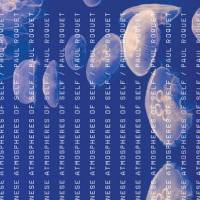University of Minnesota Press"Reading the air" (judging the atmosphere of a situation) is considered a crucial social skill in Japan. Paul Roquet's dense work on ambient media invites the reader to analyze the air of the modern city and its media in a new way.
Roquet guides his reader to close readings of key works of "ambient" (mood-regulating) media through sensual descriptions of experiences in contemporary spaces, often in urban Tokyo. Those analyses of the air Tokyoites move through and "read" subconsciously are compelling, and gently usher in his more theory-heavy investigations. Roquet offers a concrete cultural and technological context for anyone curious about the dominance in contemporary Japan of "ambient" creators like Haruki Murakami and Ryuichi Sakamoto, or of the "brand-less" brand Muji.
Roquet does ask that the reader share certain assumptions about the social demands of neoliberal society, which might be a tall order for some. But he also demonstrates, across a dizzying range of media, how what he calls "ambient subjectivation" has come to be a "key technique of contemporary self-care" since the 1970s. That is to say, Roquet discusses the implications of a society in which consumption of ambient media has become a dominant aesthetic and product for those seeking relief from the stresses of modern urban life.
The open question is if mood-regulating media offers an opiate or a new way to embrace human and environmental vulnerability.

















With your current subscription plan you can comment on stories. However, before writing your first comment, please create a display name in the Profile section of your subscriber account page.